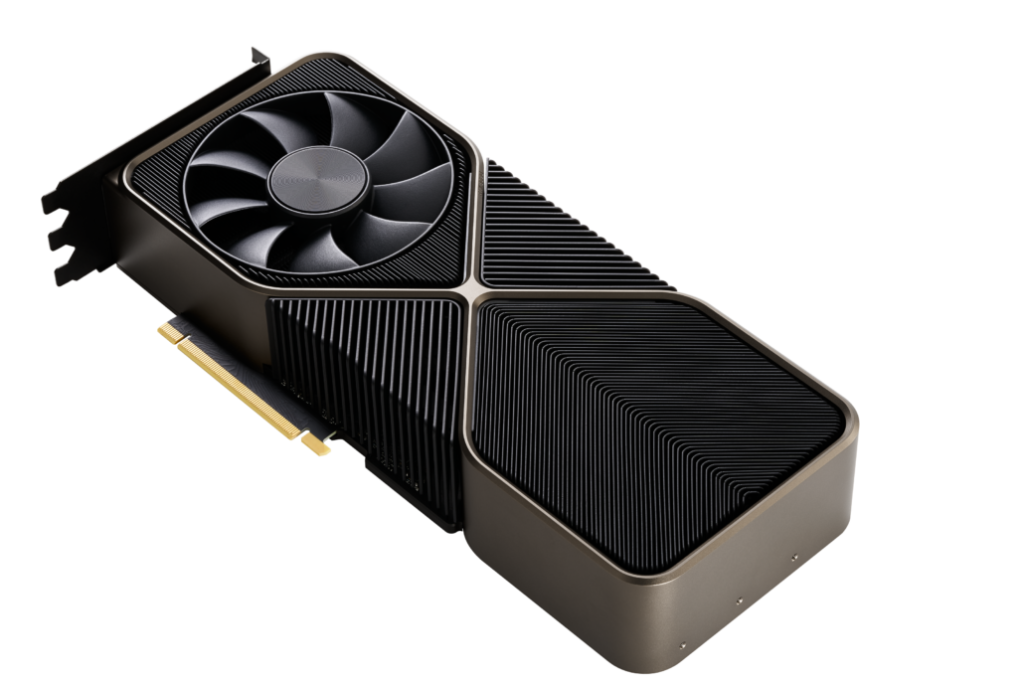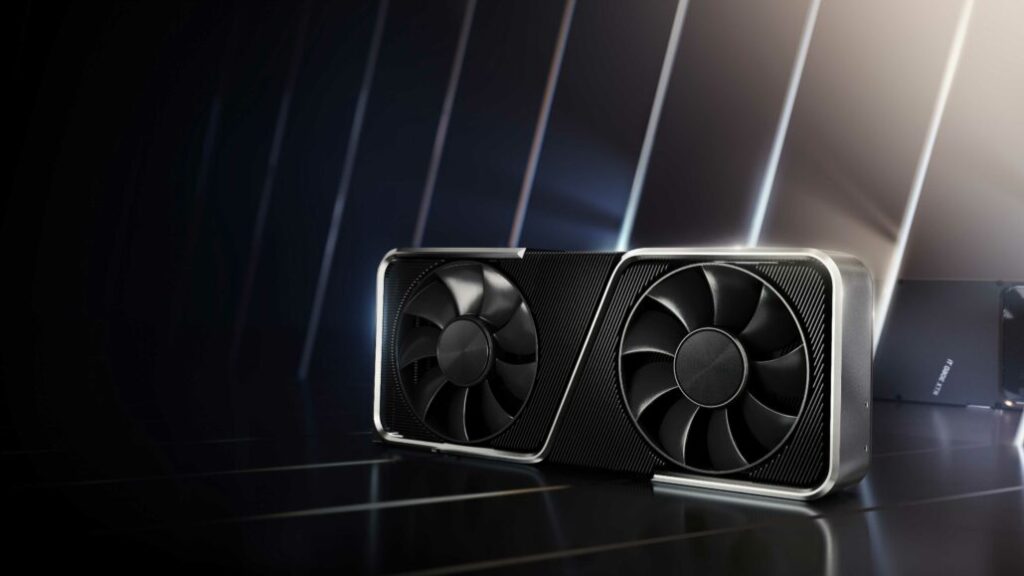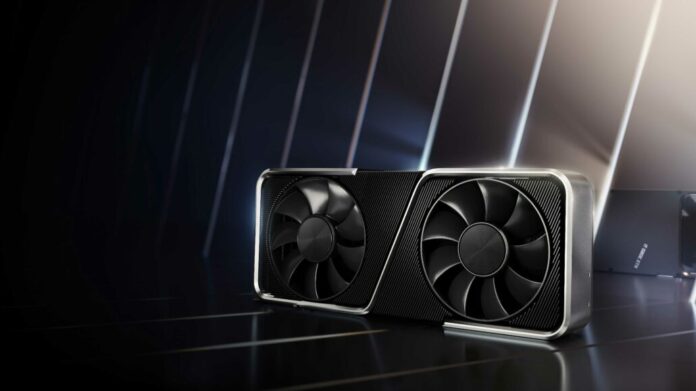ASUS has confirmed two upcoming NVIDIA GeForce RTX 30 series graphics cards, the GeForce RTX 3080 Ti & the GeForce RTX 3060. Both of these graphics cards are scheduled for launch in early ’21 but ASUS has already listed them under their supports and services page.
ASUS GeForce RTX 3080 Ti 20 GB & GeForce RTX 3060 12 GB ROG STRIX Custom Graphics Cards Confirmed
Both graphics cards were spotted by HXL (@9550pro) within ASUS’s support and services page for graphics cards. The list includes the GeForce RTX 30 series ROG STRIX variants and also mentions the unreleased GeForce RTX 3080 Ti & GeForce RTX 3060 graphics cards which we talked about in previous leaks.
The leak confirms that ASUS is working on both overclocked and non-overclocked variants for their ROG STRIX series. The GeForce RTX 3080 Ti will feature 20 GB of GDDR6X memory and the GeForce RTX 3060 will come equipped with 12 GB of GDDR6 memory. Since both of these cards are custom variants, they will be making use of the brand new ROG STRIX cooling solution that we have seen on the existing GeForce RTX 30 ROG STRIX lineup si expect top of the line cooling performance and a beefy custom PCB design.
Details from Kopite7kimi suggest that the GeForce RTX 3080 Ti FE (Founders Edition) graphics card will feature the PG133-SKU15 PCB design and the GA102-250-KD-A1 graphics core. The GA102-250 GPU has also changed since the last time we saw them and is now exactly the same as the GeForce RTX 3090 at 10496 FP32 CUDA cores.

As for memory, the card will feature 20 GB of GDDR6X memory. Unlike the 19.5 Gbps speeds of the RTX 3090, the GeForce RTX 3080 Ti is said to retain the same memory speeds as the RTX 3080 at 19 Gbps. Since we are getting a 20 GB bus interface, NVIDIA will be using a 320-bit bus interface which equals a total bandwidth of 760 GB/s. TGP for the card is set to be the same as the RTX 3080 at 320 Watts. That’s definitely needed to feed the extra cores so NVIDIA might have to optimize the clocks a bit here.

NVIDIA could undercut the AMD Radeon RX 6900 XT which is a $999 US graphics card with the RTX 3080 Ti though we have to see just how much of a difference the Ti variant makes as it will end up being sandwiched between the RTX 3080 and RTX 3090. There are reports that the RTX 3080 Ti may end up faster than the RTX 3090 due to its higher clock speeds while the RTX 3090 could remain a Titan class product serving the enthusiast and content creation market with its higher VRAM buffer.
The GeForce RTX 3060 is suggested to feature the GA106-400 GPU which is expected to feature 3840 FP32 cores in a total of 30 SM units. The graphics card will make use of the PG190 SKU by board partners which are both GA104 and GA106 pin-compatible. The graphics card has seen a range of memory specs update starting with 6 GB (14 Gbps) and now listed at 12 GB (16 Gbps).

It is rumored that the card will feature a massive 12 GB memory buffer which is larger than that of the RTX 3060 Ti, RTX 3070, and even the RTX 3080. This is not confirmed yet but the reason could be that NVIDIA wants to really tackle AMD in the mainstream segment. Again, we saw rumors of 20 GB and 16 GB for the RTX 3080 & RTX 3070 too which didn’t end up being true as they were early designs that were later on canceled.
The card will feature a 192-bit bus interface and at 16 Gbps, delivering bandwidth of up to 384 GB/s. The GeForce RTX 3060 could end up being priced at $299 US which will make it a formidable graphics card.
NVIDIA GeForce RTX 30 Series ‘Ampere’ Graphics Card Specifications:
| Graphics Card Name | NVIDIA GeForce RTX 3050 | NVIDIA GeForce RTX 3050 Ti | NVIDIA GeForce RTX 3060 | NVIDIA GeForce RTX 3060 Ti | NVIDIA GeForce RTX 3070 | NVIDIA GeForce RTX 3070 Ti? | NVIDIA GeForce RTX 3080 | NVIDIA GeForce RTX 3080 Ti? | NVIDIA GeForce RTX 3090 |
|---|---|---|---|---|---|---|---|---|---|
| GPU Name | Ampere GA107 | Ampere GA106? | Ampere GA106? | Ampere GA104-200 | Ampere GA104-300 | Ampere GA102-150 | Ampere GA102-200 | Ampere GA102-250 | Ampere GA102-300 |
| Process Node | Samsung 8nm | Samsung 8nm | Samsung 8nm | Samsung 8nm | Samsung 8nm | Samsung 8nm | Samsung 8nm | Samsung 8nm | Samsung 8nm |
| Die Size | TBA | TBA | TBA | 395.2mm2 | 395.2mm2 | 628.4mm2 | 628.4mm2 | 628.4mm2 | 628.4mm2 |
| Transistors | TBA | TBA | TBA | 17.4 Billion | 17.4 Billion | 28 Billion | 28 Billion | 28 Billion | 28 Billion |
| CUDA Cores | 2304 | 3584 | 3840 | 4864 | 5888 | 7424 | 8704 | 10496 | 10496 |
| TMUs / ROPs | TBA | TBA | TBA | 152 / 80 | 184 / 96 | 232 / 80 | 272 / 96 | 328 / 112 | 328 / 112 |
| Tensor / RT Cores | TBA | TBA | TBA | 152 / 38 | 184 / 46 | 232 / 58 | 272 / 68 | 328 / 82 | 328 / 82 |
| Base Clock | TBA | TBA | TBA | 1410 MHz | 1500 MHz | TBA | 1440 MHz | TBA | 1400 MHz |
| Boost Clock | TBA | TBA | TBA | 1665 MHz | 1730 MHz | TBA | 1710 MHz | TBA | 1700 MHz |
| FP32 Compute | TBA | TBA | TBA | 16.2 TFLOPs | 20 TFLOPs | TBA | 30 TFLOPs | TBA | 36 TFLOPs |
| RT TFLOPs | TBA | TBA | TBA | 32.4 TFLOPs | 40 TFLOPs | TBA | 58 TFLOPs | TBA | 69 TFLOPs |
| Tensor-TOPs | TBA | TBA | TBA | TBA | 163 TOPs | TBA | 238 TOPs | TBA | 285 TOPs |
| Memory Capacity | 4 GB GDDR6? | 6 GB GDDR6? | 6 GB GDDR6? | 8 GB GDDR6 | 8 GB GDDR6 | 10 GB GDDR6X? | 10 GB GDDR6X | 20 GB GDDR6X | 24 GB GDDR6X |
| Memory Bus | 128-bit | 192-bit? | 192-bit? | 256-bit | 256-bit | 320-bit | 320-bit | 320-bit | 384-bit |
| Memory Speed | TBA | TBA | TBA | 14 Gbps | 14 Gbps | TBA | 19 Gbps | 19 Gbps | 19.5 Gbps |
| Bandwidth | TBA | TBA | TBA | 448 Gbps | 448 Gbps | TBA | 760 Gbps | 760 Gbps | 936 Gbps |
| TGP | 90W? | TBA | TBA | 180W? | 220W | 320W? | 320W | 320W | 350W |
| Price (MSRP / FE) | $149? | $199? | $299? | $399 US? | $499 US | $599 US? | $699 US | $899 US? | $1499 US |
| Launch (Availability) | 2021? | 2021? | 2021? | November 2020? | 29th October | Q4 2020? | 17th September | January 2021? | 24th September |

























